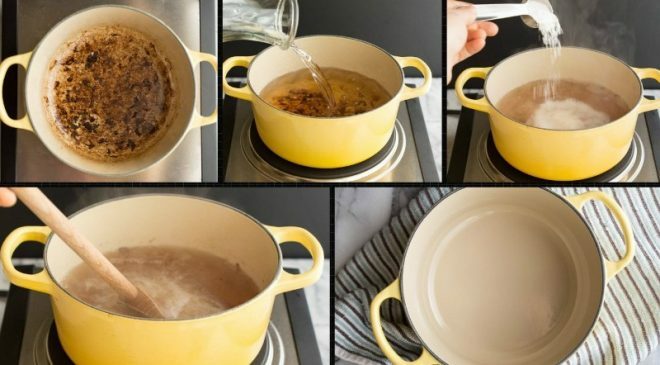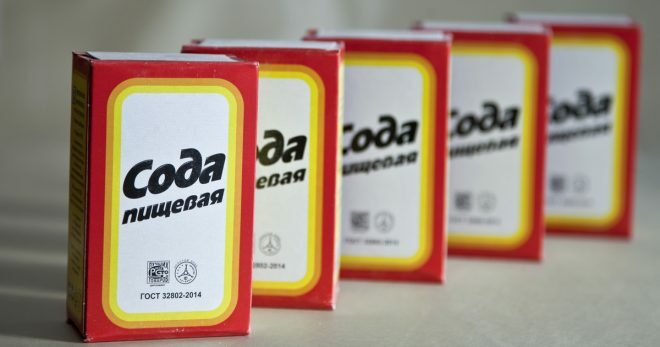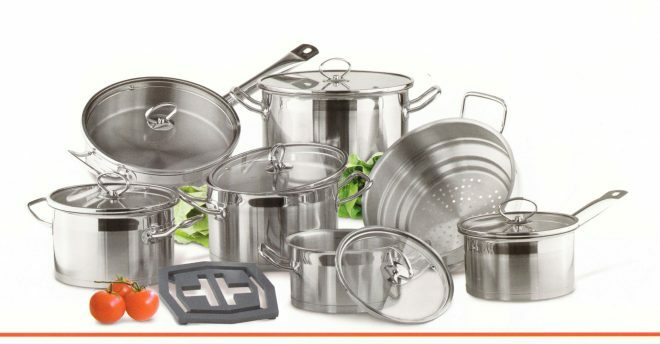Russia, Moscow region, Moscow+79041000555

 It takes ~ 3 minutes to read
It takes ~ 3 minutes to read
Everything would be too simple if there weren’t periodically unforeseen situations in the kitchen, when something spilled, boiled away and ran away, splashed. Many of these strokes take on kitchen towels.
And what is the result? And as a result, we have an unpleasant smell of tissue, spots of fat, yellowness. But after all, everyone wants to see snow-white towels that complement the pleasant interior of a clean kitchen with sparkling dishes.
There is a need to come up with the most optimal and effective way to wash and bleach them.
How to achieve a clean towel?
You can remove grease stains and other stains from tissue in various ways. For this, a wide variety of means can be used. Here are the most popular options:
- Washing. Many have long abandoned hand washing, and the machine is much more efficient.
- Soak. More specifically, pre-soak wash.
- Boiling. An old but fairly effective reception.
- Whitening. It implies the use of special industrial bleaches or folk remedies.
With severe contamination, you have to combine these methods to achieve the desired result.
Let us dwell in more detail on each method.
Washing

Choose a temperature:
- White cotton - 90 degrees.
- Colored cotton or blended fabric - 60 degrees.
It must be borne in mind that for colored fabrics, a washing temperature of 40 degrees is often indicated. The manufacturer recommends just such a mode so that the color does not suffer. However, this temperature is clearly not enough to remove complex fatty contaminants. Experience shows that most of the colored fabrics from which the towels are made are quite resistant to withstand temperatures of 60 degrees and can withstand repeated washing.
If the towel is clean enough, and the washing time has already come, no special conditions will be required. If the fabric is heavily soiled, you will have to pre-soak it in a special solution. There are several options for preparing such a solution:
- Soda is added to the laundry detergent.. Moreover, they use not only soda ash, which is traditionally used for washing, but also baking soda. Washing soda is more active and is used for stubborn stains, baking soda acts more gently, but also perfectly cleans and deodorizes. Soak for at least four hours. Do not use this method for colored fabrics, soda does not have the best effect on color.
- Common edible salt is added to cold water.. One tablespoon of salt is needed per liter of water. The method is quite simple, but effectively removes stains from tea and coffee, which are leading among other pollutants in kitchen textiles. This method can be used for fabrics of any composition and color, they will not suffer.
Boiling

A solution for boiling can be prepared in several ways:
- Shavings of laundry soap with baking or soda ash.
- A mixture of washing powder with oxygen bleach. For ten liters of water - half a glass of each remedy.
- Chlorine bleach and salt in equal parts. For ten liters - 500 g.
- Detergent with the addition of hydrogen peroxide. For ten liters of water you need to take one glass of powder and half a glass of peroxide. This is a very effective method, but the tissue in this solution should not be longer than thirty minutes.
As a container for boiling, you need to use an enameled pan or bucket. Only white fabrics can be boiled.
Whitening

It makes no sense to describe the processing using industrial bleaches, because the packaging of such products always contains instructions for their use. Therefore, consider whitening towels using homemade recipes:
- Laundry soap and boric acid. Contaminated areas are thoroughly soaped. For ten liters of water, a certain amount of shavings of laundry soap and two to three tablespoons of boric acid are added. After four hours of soaking, towels can be washed in the usual way.
- Table mustard. It is enough to stir dry mustard in hot water and soak the towels in the resulting solution for three hours. This is the oldest way of all, whitening tissue with mustard began many decades ago.
- Ammonia. For one part of the water you need to take one part of ammonia. The resulting solution is applied directly to the spots and allowed to dry. Next - wash in the usual way.
- Hydrogen peroxide. A solution is prepared at the rate of 5-10 ml of peroxide per liter of water. The towels are soaked for six to seven hours, then they need to be washed in the usual way.
- Soda Ash Chlorine. For ten liters of warm water take 500 grams of soda and bleach. Do not soak the fabric immediately. The solution should settle for a day, then it must be filtered to remove undissolved lumps. After that, towels can be soaked in a solution for up to five hours. The usual wash completes the procedure.
- Vegetable oil. So we come to the most interesting! We set ourselves the goal of answering the question of how to whiten towels with it at home. The first impression of the proposed method is always associated with surprise and distrust. But do not make hasty conclusions. We will analyze in more detail.
How to wash kitchen towels with vegetable oil?
There can be many uses for cleaning fabrics, but we will look at the three best known methods.
First way

- 4 tablespoons of vegetable oil;
- 4 tbsp. tablespoons of dry bleach;
- 300 g of washing powder.
The ingredients should be thoroughly mixed in water. Then, for two to three hours, towels are soaked in the resulting solution. Under the influence of active substances, the pollution softens. Finally remove the dirt and the solution itself must be washed. You can wash in any washing machine. It is recommended to add additional rinses to better remove residual oil from the fabric.
This method can also be used for colored fabrics, if the dye is sufficiently stable. The oil base softens the aggressive effects of bleach.
Second way
To prepare the second solution for 10 liters of water you will need:
- 2 tbsp. tablespoons of vinegar essence (it can be replaced with one glass of table vinegar);
- 2 tbsp. tablespoons of soda;
- 80 g of washing powder;
- 2 tbsp. tablespoons of vegetable oil.
The resulting solution was stirred. Towels in it can be soaked all night. It is quite convenient. In the morning it will remain to wash them in an ordinary washing machine. It is advisable to choose an intensive rinse or increase the number of cycles.
If the reaction of soda and vinegar is too active, you can replace the soda in the solution with bleach. The effectiveness of the impact will not be affected.
Third way
This option is even more interesting, because now we will put already washed towels in the prepared solution.
For ten liters of water you need to add:
- 2 tbsp. tablespoons of vegetable oil;
- 2 tbsp. tablespoons of bleach;
- 300 g of washing powder.
We prepare the solution on the basis of hot water. Immerse in it pre-washed towels, leave them until the liquid cools completely. We pull out and carefully rinse to remove residual active ingredients. Next, just dry the fabric. This method should also help eliminate stubborn dirt.
Improving the effectiveness of home whitening
There are recommendations to more effectively whiten kitchen towels at home:
- Vegetable oil is added to all solutions last. If you do the opposite, stir the remaining ingredients will be quite difficult.
- Towels should be laid dry in the prepared solution. Pre-wetted contaminants break down much more difficult.

It is very important for mothers and their babies that such whitening methods are completely safe and will not harm the children's body. Therefore, more and more solutions with the addition of oil are used to wash baby clothes, diapers, shirts, blouses and sliders. Linen bleached using oil does not cause allergies. This is especially important for underwear in contact with the skin.
Despite the fact that the effectiveness of oil-based products initially seems doubtful, experience shows their high cleansing ability.
Vegetable oil can be used not only for white, but also for colored fabrics. It helps to clean fresh and old spots. The possibility of removing traces of tea and coffee, fat, wine, juice of berries and even tomato was tested in practice.
The effectiveness of the use of vegetable oil is based on the fact that it helps to soften stubborn dirt. And in a softened form, contaminants are easily removed by subsequent washing or even a simple rinse.
Noticing the appearance of spots that do not wash off in the usual way, do not rush to get upset and throw away quite new things. One of the proposed methods is likely to help solve the problem. Kitchen towels, linens and other textiles will be clean at minimal cost.
Video: how to quickly bleach kitchen towels
With great interest I always read your comments to my articles. If you have any questions, feel free to ask them, leave, you are welcome, Your feedback in the form below. Your opinion is very important to me. Thanks to your criticism and thanks, I can make this blog more useful and interesting.
I would be very grateful if you rate this post and share it with your friends. This is easy to do by clicking on the social media buttons above. Do not forget the article you like Add to bookmarks and subscribe to new blog posts on social networks.


